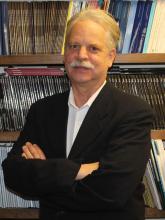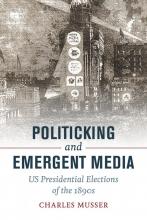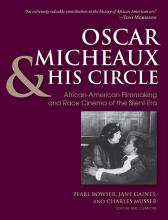Charles Musser
Biography
Charles Musser teaches courses on film and media historiography, American cinema and documentary film (both critical studies and production). He also serves as Director of the Summer Film Institute. His book The Emergence of Cinema: The American Screen to 1907 (1990) received the Jay Leyda Prize in Cinema Studies, the Theater Library Association Award for best book on Film, TV and Radio, the Katherine Singer Kovacs Prize for outstanding book in Media Studies and other awards. His other books include Before the Nickelodeon: Edwin S. Porter and the Edison Manufacturing Company (1991), High-Class Moving Pictures: Lyman H. Howe and the Forgotten Era of Traveling Exhibition, 1880-1920 (with Carol Nelson, 1991), and Edison Motion Pictures, 1890-1900: An Annotated Filmography (1997). The latter received Honorable Mention, Katherine Kovacs Prize for Outstanding Book in Media Studies (1998) and Honorable Mention, Theater Library Book Award for Best Book on Motion Pictures, Radio and Television. More recently, he co-edited Oscar Micheaux and His Circle: African American Filmmaking and Race Cinema of the Silent Era (2001) with Jane Gaines and Pearl Bowser, which included his prize-winning essay “To Redream the Dreams of White Playwrights: Resistance and Reappropriation in Oscar Micheaux’s Body and Soul.” That book became the starting point for Pioneers of African American Cinema (2016), a five-DVD box set, which he co-curated with Jacqueline Stewart (University of Chicago). Produced by Kino-Lorber, the accompanying booklet includes his essay “Race Cinema and the Color Line.” His book Politics and Emergent Media: US Presidential Elections of the 1890s (University of California Press, 2016) appeared just in time for the Trump-Clinton campaign season.
Professor Musser has worked extensively in documentary, beginning with a two-year “apprenticeship” as first assistant editor on Peter Davis’s Oscar-winning Hearts and Minds (1974). He went on to produce and direct the prize-winning An American Potter (1976) and Before the Nickelodeon: The Early Cinema of Edwin S. Porter (1982), which premiered at the New York Film Festival. He taught the first university-level course devoted to filmmaker Errol Morris and went on to make a feature-length documentary portrait: Errol Morris: A Lightning Sketch (2014), which premiered at the Big Sky Documentary Film Festival. He is currently working on a documentary about the family album, which will premiere at the Quezon City International Film Festival in October 2018. His recent essays on documentary include “Carl Marzani & Union Films: Making Left-wing Documentaries during the Cold War, 1946-53,” The Moving Image, 9:1 (Spring 2009), “First Encounters: An Essay on Dead Birds and Robert Gardner,” in Rebecca Meyers, William Rothman, and Charles Warren, eds. Looking with Robert Gardner (2016), and “Charles Sheeler and Paul Strand: Friends, Collaborators, Rivals,” in Kirsten M. Jensen, ed., Charles Sheeler: Fashion, Photography and Sculptural Form (2017).
Musser has also worked extensively in the Public Humanities. He is film historian for the Thomas A. Edison Papers. He is a founder and co-director of the 11-day New Haven Documentary Film Festival, which had its fifth iteration in 2018. He has curated and programmed shows at such venues as the Museum of Modern Art (New York), the New-York Historical Society, UCLA Film and Television Archives, the International Festival of Arts and Ideas (New Haven, CT) and the Giornate del Cinema Muto (Pordenone, Italy). He has received the Prix Jean Mitry (1996), the George Eastman House Society International Scholar Award (1992) and is an Academy Film Scholar (2005). For more information see his website: www.charlesmusser.com.
Education History
BA, Film and Literature, Yale University, 1975
MA, Cinema Studies, New York University, 1979
Ph.D., Cinema Studies, New York University, 1986


